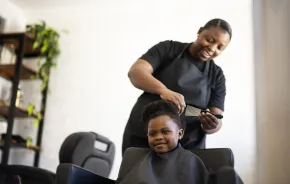 We spoke with Dr. John Gottman about some of the secrets around sex and marriage. Read our Q & A and then buy your tickets to Gottman's upcoming Seattle lecture, which will offer advice, research and strategies for couples who feel strong and couples who are struggling.
We spoke with Dr. John Gottman about some of the secrets around sex and marriage. Read our Q & A and then buy your tickets to Gottman's upcoming Seattle lecture, which will offer advice, research and strategies for couples who feel strong and couples who are struggling.
How can couples keep the romance alive in a long-term relationship?
We’ve developed a set of tools to help couples continue to have romance and sex in a relationship. Go to our website, gottsex.com. There are tools, interviews and videos that go through very specific skills on ways to keep romance and sex alive. One, for example, is building a “Love Map” of your partner’s erotic world through asking your partner questions about sexuality and sensuality.
What kinds of questions do you suggest that men ask women?
There are questions about orgasms, about intercourse, masturbation, libido, and others, such as, “Do you think I can tell when you’re in the mood for sex?” “How do you feel when I initiate sex?” “What do you like about your body?”
How important is it for couples to have both emotional and physical intimacy in a relationship?
It’s very important. Evidence is very clear that if people feel good about sex, they feel good about their relationship in general. It doesn’t mean there’s an ideal frequency for having sex, or a formula.
We encourage couples to create a different attitude about sex — to think about kissing and holding as sex. When couples have a more general attitude about sex, a lot of the sexual dysfunctions disappear.
Are people today more open about discussing sex?
Even today, most American couples are uncomfortable talking about sex. Young people are a little less uncomfortable. Our cultural heritage still hasn’t changed very much.
One of the “tools” for talking about sex we recommend is having intimate conversations. That means being able to listen to your partner’s feelings; finding out who they are, what’s going on in their lives, what are their dreams and hopes and wishes. Most couples don’t have those conversations, particularly men.
Why are men not good communicators?
Where would they learn it? Not in school. I think girls are really socialized to think about relationships and taking care of people. When we study the play of 4-year-old girls, we see them playing with their babies, while the boys tend toward adventure, war and stalking dangerous beasts.
It’s a combination of biology and socialization. We know that as early as we go back, there was a specialization of function of women. The males were focused on danger, on aggressive tribes; the females, on gathering food and taking care of the babies. They created a supportive social network. Even today, guys are more loners.
Is having a good sexual relationship as important as being able to communicate?
We try to bring together those two sections of bookstore. In the bookstore section on sex, all they really talk about is the sex act. The section about communication focuses on resolving conflict. We want to teach couples how to talk during sex and how to have intimate conversations.

How can couples avoid betrayal and build trust?
The erosion of trust is different than the process involved in betrayal. Trust means that your partner is looking out for your welfare, thinking about your happiness. It’s knowing that your partner has your best interests at heart. In a good relationship, the husband thinks, “It’s important that my wife also is happy.” There is some sacrifice in relationships. Betrayal begins with someone thinking, “I can do better.” There’s an orderly cascade toward betrayal; it has 24 steps and it leads to looking around at other people and wanting someone else. Eventually, the person thinks his partner is not trustworthy: “My partner doesn’t really love me, will cheat on me, is very selfish.” These people project those qualities they themselves have on their partner.
Linda Morgan, managing editor of ParentMap, is the author of Beyond Smart: Boosting Your Child’s Social, Emotional, and Academic Potential.









